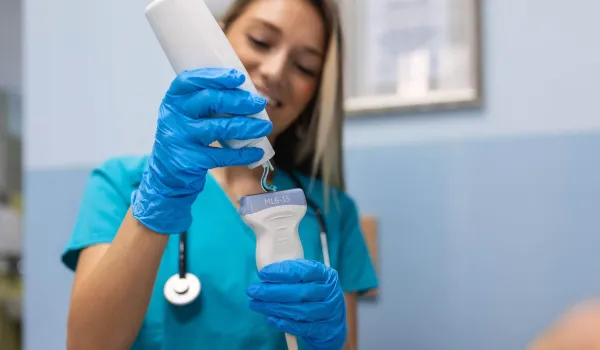
*Updated Jan 2020
More good news for Concorde students, prospective Concorde students or those interested in health care professions. Thanks to increased demand for their services, health care professions dominate U.S. News & World Reports Best Jobs list.
While Software Developer came in at No. 1, health care professions accounted for 18 of the 25 top careers on the list including Dentist at No. 2, Physician Assistant at No. 3, Orthodontist at No. 4, and Nurse Practitioner at No. 5.
Data for the list came from the U.S. Bureau of Labor Statistics, an arm of the federal Department of Labor. U.S. News ranks jobs according to several components, including median salary, employment rate, 10-year growth volume, and 10-year growth percentage. Other factors include future job prospects, stress levels, and work/life balance.
Concorde programs fared well in the top 25 jobs, led by Medical & Health Service Managers at No. 11, Registered Nurses at No. 13, Dental Hygienists at No. 24, and just outside the top 25 is Physical Therapist Assistants at No. 26.
What makes each of those occupations desirable
No. 11 Medical & Health Service Manager
Medical and health services managers, also called healthcare executives or healthcare administrators, plan, direct, and coordinate medical and health services. They may manage an entire facility, a specific clinical area or department, or a medical practice for a group of physicians.
Medical and health services managers work closely with physicians and surgeons, registered nurses, medical and clinical laboratory technologists, and technicians, and other healthcare workers. Others may interact with patients or insurance agents.
Most medical and health services managers have at least a bachelor's, however, master's degrees are common and sometimes preferred. According to BLS stats, demand is expected to grow 18% through 2028, adding some 71,600 new jobs.
No. 13 Registered Nurse - the hardest working of health care professionals
Nurses are among the hardest working of health care professionals. They communicate with patients about their needs and concerns, keep records and pass information to doctors. They take tests and monitor vital signs.
Nursing specialties include care for people with cancer, substance addiction, and heart disease, plus women delivering babies.
Registered Nurses typically have either bachelor or associate degrees, plus licenses. According to BLS, demand for Registered Nurses is expected to increase by 12% through 2028, adding 371,500 jobs.
No. 24 Dental Hygienist
Dental hygienists examine patients for signs of oral diseases, such as gingivitis, and provide preventive care, including oral hygiene. Using many different types of tools- including hand, power, and ultrasonic- in their work. Plus they also use x-ray machines to check on teeth and detect problems in the jaw.
They also talk to patients about ways to keep their teeth and gums healthy. For example, they may explain the relationship between diet and oral health. They may also advise patients on how to select toothbrushes and other oral care devices
Dental hygienists typically need an associate degree in dental hygiene. Programs can take up to 3 years to complete. All states require dental hygienists to be licensed; requirements vary by state.
According to BLS, demand for dental hygienists is expected to grow 11% through 2028, adding 23,700 new jobs.
No. 26 Physical Therapist Assistant
Helping someone regain the ability to walk or use her wrist or tie his shoes is the joy of working as a physical therapist assistant. These health care professionals provide support to and carry out the plans of physical therapists. They observe patients, guide them through exercises and techniques and educate them about how to improve their mobility.
This career requires an associate degree, such as what is offered at Concorde, and a license. According to BLS, demand for the job is expected to increase by 26% through 2028, adding 38,000 jobs.
Ready to get a top job?
If a career in one of the top jobs in health care is something you're looking for, then Concorde can help achieve it. Concorde offers 20+ programs in health care, many having monthly starts so you can get yourself into a health care career quicker than a traditional college or university.
To find out more about our programs and how we can help you get the career you've always wanted to reach out to our admissions team or call us today!
Take The Next Step Towards a Brighter Future
We have a Concorde representative ready to talk about what matters most to you. Get answers about start dates, curriculum, financial aid, scholarships and more!




